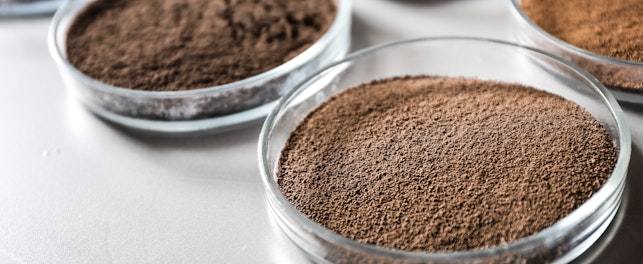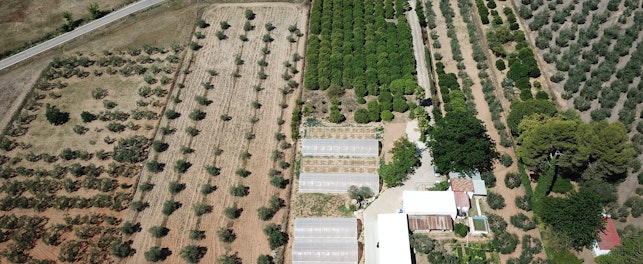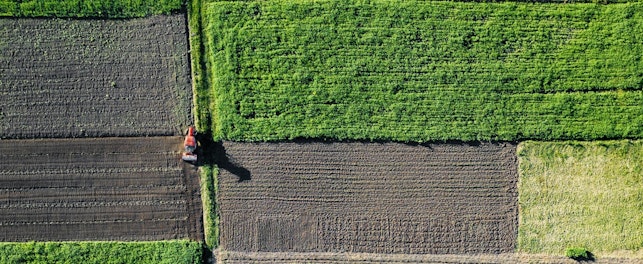SGS is now using forensic methods to monitor insect biodiversity.
We’re in the midst of a biodiversity crisis, with some experts estimating we may now be losing one species every 10 minutes. Conventional monitoring techniques no longer suffice – they lack the spatial and temporal resolution for such rapid extinction rates. To turn the tide, we must implement effective monitoring that enables us to make forward-thinking decisions well in advance.
Global policymakers are increasingly aware of the tremendous risk this current biodiversity crisis poses to humans. Food supply and farming are among the sectors most at risk, yet farmers are putting pressure on already fragile ecosystems by using pesticides and fertilizers. Therefore, they have been asked to change their management strategies to increase biodiversity and reduce rapid, widespread species decline.
But how can we effectively assess whether biodiversity is increasing, and monitor this on an ongoing basis?
Biologists define biodiversity as the totality of genes, species and ecosystems within a region. Biodiversity assessments already exist but they’re incredibly labor-intensive, requiring many experts in the field to visually assess the variety of species.
Fortunately, thanks to rapidly growing databases containing the characteristics of species, we can now address biodiversity through DNA-based forensic investigations. This involves using DNA traces left by organisms in the water, air or on a surface to identify which species are present.
At SGS, our focus on easy sampling methods to improve the detection of key species has led us to develop SGS InsectScan, an environmental DNA (E-DNA) based tool tailored for monitoring insect biodiversity. SGS InsectScan is a cost-effective method of monitoring biodiversity that also provides critical insights to enhance natural pollination and manage pests more naturally.
Put simply, it’s the tool you need to take action and monitor your success moving forward.
SGS InsectScan’s Benefits
Having invested in a Global Biosciences Center (GBC) and Competence Center for Molecular Biology (CCMB) based in Lisbon, Portugal, we have extended our services to include DNA- and RNA-based investigations and methods.
SGS InsectScan is straightforward and easy to use. Our labs have developed unique workflows to extract the DNA traces insects have left on flowers and leaves – meaning all users have to do is collect the flowers or other vegetation around the farm. We then use high-throughput sequencing and a bespoke computational pipeline to match the sequenced DNA data to genomics databases. Our output data passes through rigorous quality control (QC) checks and we structure our reports to provide meaningful results and visualizations. These cover insect biodiversity and the distribution of species, plus various additional key metrics.
This innovative method provides the insights that farmers need to deploy nature-based solutions around the farm, attract natural pollinators or aid integrated pest management. Repeated analysis of different fields within a region produces insights that explain differences in the yield and allow farmers to assess how management changes have improved biodiversity.
Why SGS?
SGS's crop science services focus on supporting new product developments in research and development (R&D) and conducting post-commercialization studies. We operate a global network of field research facilities and dedicated analytical laboratories for physical-chemical, ecotoxicological, environmental, microbial and residue studies. Our crop science experts also run seed R&D projects from early breeding to seed treatment trials.
Now that we offer SGS InsectScan, we can also assess the potential impact of farm management strategies, pesticides, biological pesticides, biostimulants and new fertilizer products on the insect community’s characteristics and biodiversity at the field level. This information supports product label claims and gives farmers confidence that the products positively impact biodiversity. Learn more in our recent video SGS E-DNA Services: InsectScan.
For further information, please contact;
Dr. Andreas Zumdick
VP – Crop Science Services
SGS Germany GmbH
Im Maisel 14
D – 65232 Taunusstein
t: +49 (0)6128 744 730



